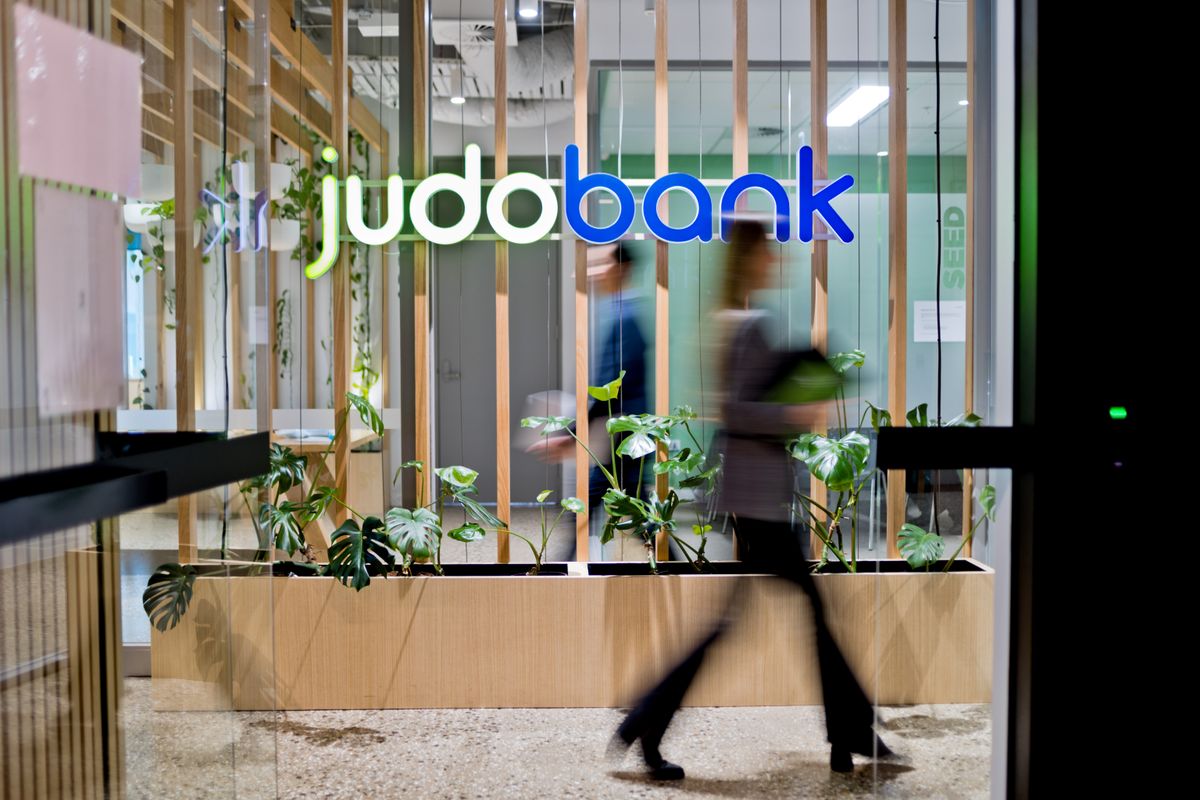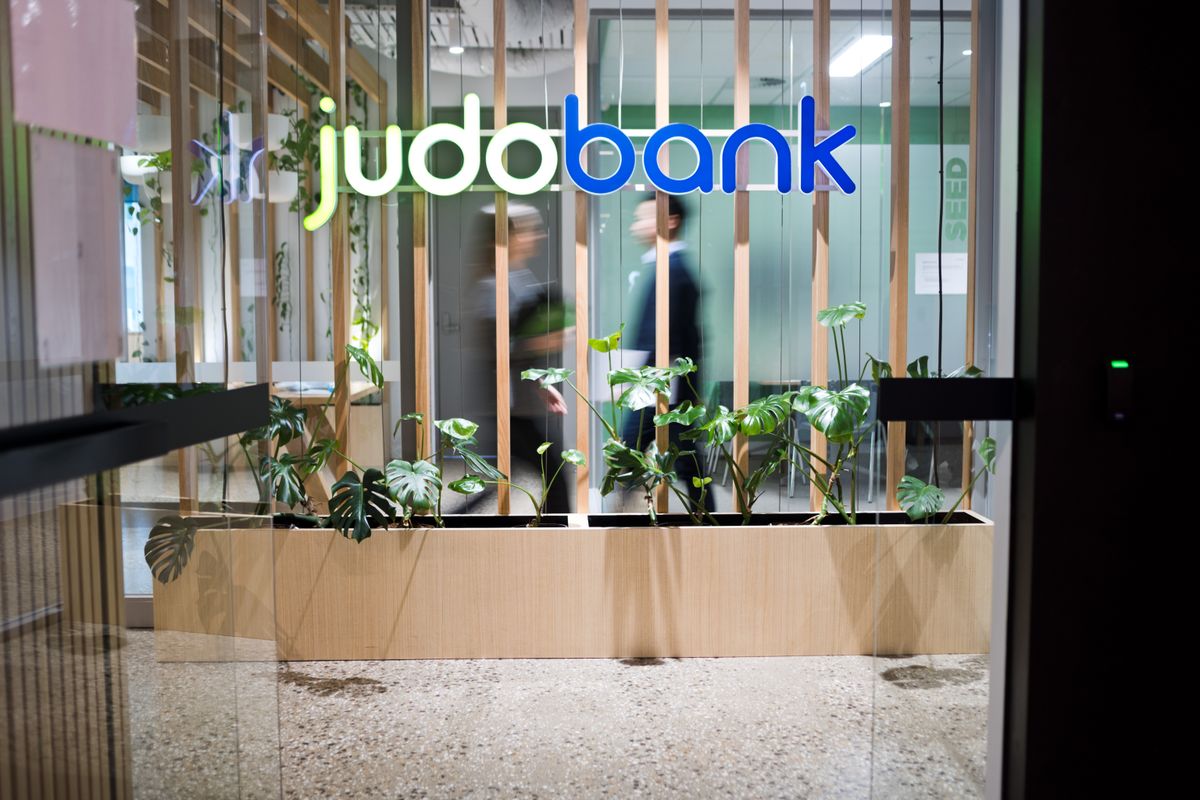Term Deposit Help Hub

Protecting yourself from online scammers
With rising numbers of online scammers illegally posing as trusted financial institutions, helping you keep your personal information with Judo safe and secure is important to us. We have advanced security measures in place to seek to ensure the security of our customer’s funds and personal information. But knowing what to look out for and what to do is your best first line of defence. Our Information Security Manager has put together a guide on how to protect yourself from online scams below.

Understanding your SMSF term deposit maturity options
When your SMSF term deposit matures, you’ll need to decide what to do next. You can decide this at the beginning of the term or any time before your term deposit matures or during the ‘grace period’ that your authorised deposit-taking institution (ADI) offers on maturity. You may choose to reinvest, withdraw some or all of the funds, or explore new investment options. This article covers some of the different paths you can take when your SMSF term deposit matures.

How average term deposit rates vary across different terms
Term deposit interest rates can vary widely, and the term length (how long you lock your money away) plays a large role in determining the interest rate offered. This article explores how and why interest rates vary across different term lengths.

Using term deposits to help you plan your holiday season spending
Did you know you could use term deposits to help plan your holiday spending? Whether you’re gearing up for Christmas, Lunar New Year, or any other festive occasion, a term deposit may help you manage your holiday budget ahead of time. This financial tool can give you peace of mind knowing your money will be available when you plan for it, and with some extra funds on top.

Judo Bank reaches $10 billion milestone in total deposits
Judo Bank has reached a significant milestone, with $10 billion in total deposits. For a bank that received its full banking licence in 2019, this achievement reflects a deep level of trust from thousands of Australians who are choosing safety, certainty, and simplicity when it comes to managing their money.

SMSF term deposit calculator: how much can you earn?
Managing a self-managed super fund (SMSF) gives you more control over your retirement savings, and many people turn to SMSF term deposits for a predictable way to grow their funds. But how do you work out how much your SMSF can earn from a term deposit? An SMSF term deposit calculator can be a helpful tool to help you estimate your returns. This article explores how they work, as well as some potential strategies that may help maximise your SMSF’s earnings.

How many account holders can a Judo Bank SMSF term deposit have?
When setting up a term deposit for a self-managed super fund (SMSF) with Judo Bank, there are specific rules around how many trustees can open the account. These rules exist to help us streamline the application process and provide a smoother account management experience.

Is a term deposit right for your SMSF investment strategy? Some key considerations
Running a self-managed super fund (SMSF) means you have complete control over your superannuation investments. It also means making responsible investment choices to protect and grow your members' retirement savings. One investment option SMSF trustees often consider is a term deposit. This article covers some of the advantages and potential drawbacks of SMSF term deposits to help SMSF trustees decide if a term deposit may fit into their SMSF’s unique investment strategy and goals.

Exploring SMSF term deposits for retirement planning
Managing your own super through a self-managed superannuation fund (SMSF) can give you more control over how your retirement savings are invested. With more freedom, many people look for ways to balance the growth of their retirement savings with some stability – and that’s where SMSF term deposits can come in. They can offer a sense of predictability with fixed returns that aren’t affected in a market experiencing falling interest rates. Everyone’s retirement goals are different, but SMSF term deposits can be a useful part of your strategy to manage cash flow and grow your savings as you head towards retirement.

Buying property with your SMSF? How SMSF term deposits can help
Managing a self-managed super fund (SMSF) gives you the flexibility to choose how to invest for your retirement, and property is one option some SMSF trustees explore. Investing in property through an SMSF isn’t a simple process. It comes with specific rules, risks, and costs that require careful planning and independent advice.

Term deposit interest paid monthly vs annually: does it matter?
When considering a term deposit, one decision you’ll need to make is how often you want to be paid interest. Whether you choose to have your interest paid monthly, annually, or at maturity, each option can impact your overall returns differently.

How RBA cash rate changes impact term deposit rates
The Reserve Bank of Australia (RBA) plays a key role in shaping the Australian economy, and one of its most important levers is the cash rate. This rate influences everything from home loan interest to term deposit interest rates.

How does a joint term deposit account work?
A joint term deposit is a type of savings account typically opened by two people, commonly couples or family members, where a lump sum is invested for a set period at a fixed interest rate. A joint term deposit allows two people (potentially multiple people, depending on the term deposit provider) to benefit from the investment while sharing responsibility for, and access to, the funds.

Saving for a house deposit? Here’s how term deposits can help
Saving for a house deposit can feel overwhelming – taking both time and discipline. A term deposit may help you reach your goal faster.

How a term deposit could fit into your emergency fund plan
When it comes to financial security, you’ll often hear from financial experts that an emergency fund is one of the most important things you can have. It’s your safety net for life’s unexpected expenses – whether it’s car repairs, medical bills, or even a sudden job loss. But where should you keep your emergency fund? One option you might be considering is a term deposit. This article explores how term deposits stack up for emergency funds, weighing up some of the pros and cons to see if term deposits may be worth considering.

Using term deposits for predictable returns in your retirement plan
Planning for retirement involves making important decisions about how to protect and grow your savings. With so many investment options available, it can be challenging to find the right balance between security and returns. Term deposits, however, can offer a reliable, low-risk way to generate stable returns and preserve capital.

What is an SMSF?
Setting up a self-managed super fund (SMSF) can give you more control over your superannuation, but it comes with its own set of responsibilities and regulations. Here’s an overview of some of the things you should know about SMSFs in Australia, including some of the benefits, considerations, rules and regulations around setting up an SMSF.

Is a locked savings account right for you? Some key things to consider
Saving money takes discipline, and it can be tempting to dip into your savings now and again. That’s where locked savings accounts may come in handy; they limit access to your funds and may impose penalties for early withdrawals, helping you stay focused on your savings goals. This article explores some of the different types of locked savings accounts and their pros and cons to help you consider if they may be suitable savings products for your financial habits and goals.

Is my money safe in a term deposit?
Term deposits are seen as a low-risk way to grow your savings thanks to the security of a fixed interest rate and the protection offered by the Australian Government’s Financial Claims Scheme (FCS). This article explores why term deposits are considered low risk, and the safeguards that are in place to protect your savings.

Using term deposits to support your SMART financial goals
Setting SMART financial goals means being Specific, Measurable, Achievable, Realistic, and Time-bound with your savings plans. It’s a method to stay focused and organised when working toward certain financial goals, for example, a house deposit or even retirement. Term deposits neatly fit into the SMART financial goals framework, offering fixed returns over a set period, a chance to lock in your savings and to help keep you disciplined.

Five budgeting tips to boost your savings for term deposits
Considering opening a term deposit to lock away your savings? The minimum deposit you need will vary depending on the authorised deposit-taking institution (ADI), but the general rule is simple: the more you lock away, the more interest you’ll earn over the term. If you’re trying to grow your savings to lock away in a term deposit, these are some simple strategies that may help you get there faster.

How basis points work and their impact on term deposit interest rates
When it comes to finance and savings products, even the smallest changes in interest rates can make a difference in returns. One way these changes are measured is through something called basis points. This article broadly covers what basis points are, how they’re used in setting interest rates, and why even small shifts in basis points can impact the interest rate offered on term deposits.

Understanding early withdrawal fees and other penalties
Breaking a term deposit before it matures may come with penalties and/or fees, such as adjustments to the interest or funds paid to you, or a flat administration fee for seeking to break early. This article broadly covers some of the key things you need to know about term deposit early withdrawal penalties and/or fees, and how they may be calculated.

Accessing your term deposit early due to financial hardship
When you invest in a term deposit, you invest on the basis that your money is locked in for a set term at a fixed interest rate. If you want to withdraw your funds before the term ends, you are generally required to give 31 days' notice (where the term deposit is not an “at call” but an “advance notice” term deposit).

Can you put superannuation in a term deposit?
If you’re looking for a low-risk, stable way to grow your super, a self-managed super fund (SMSF) term deposit might be a suitable option. SMSF term deposits can offer secure and stable growth, which may be appealing if you prefer to avoid the ups and downs of riskier investments. This article walks you through how term deposits can work as part of an SMSF, the benefits they can offer, and some key considerations.

Do you pay tax on term deposit interest?
When you earn interest on a term deposit, it's important to remember that this income is taxable. The Australian Tax Office (ATO) considers that interest earned on term deposits forms part of your taxable income. This means the interest you realise on your term deposit may be impacted by your marginal tax rate.

What to prepare when opening a personal term deposit account
Before opening a personal term deposit account, you’ll need to meet a few key requirements. Depending on the authorised deposit-taking institution (ADI) that is the term deposit provider, you may need to be at least 18 years old to open an account with the ADI and will require identification documents such as your passport, Medicare card and/or driver’s licence. Financially, you’ll need to meet the minimum deposit requirements of the ADI you’ve chosen (commonly between $1,000 and upwards of $5,000).

What is an authorised deposit-taking institution (ADI) in banking?
An ADI is a financial institution licensed by the Australian Prudential Regulation Authority (APRA) to conduct a banking business in Australia including accepting deposits and making advances of money.
Banks, credit unions and building societies are all examples of ADIs in Australia. By law, these financial institutions must hold an ADI licence to accept deposits.

What happens when a term deposit matures?
When your term deposit matures, you’ll need to decide what to do with your funds. Whether you want to reinvest, withdraw, or explore another option, the right choice depends on your particular financial goals and circumstances. This article explores some of the different paths you can take when your term deposit reaches maturity.

Term deposits and the Australian Government Financial Claims Scheme (FCS)
The Financial Claims Scheme (FCS) is an Australian Government deposit guarantee designed to protect depositors in the unlikely event an authorised deposit-taking institution (ADI) or an APRA-regulated general insurer in Australia fails. The FCS is designed to provide prompt access to deposits that are protected under the FCS (up to $250,000 per account holder, per ADI).

Can you add money to a term deposit?
Can you add more money to a term deposit once the term has started? The short answer is generally no. With most term deposits, except during any grace period on opening or rolling over a term deposit offered by a particular provider, you can’t make additional deposits until the term ends. This is one of the main differences between a term deposit vs savings account.

What is a term deposit and what are the benefits?
A term deposit is considered a low-risk savings product that offers a fixed interest rate for locking in your money over a set period (also known as the term length). This article provides an overview of term deposits, including some key features and factors to consider when evaluating if they might be a suitable savings option for you.

What is term deposit laddering and how does it work?
Term deposit laddering is a savings strategy that may help balance flexibility and returns. Instead of putting all your money into one long-term deposit, you split it across several deposits with different maturity dates. This article broadly explains how term deposit laddering works and some benefits and considerations of this strategy.

Term deposits vs. savings accounts
When it comes to storing and saving money, you’ve probably heard about both term deposits and savings accounts. While they might seem similar at first glance, they have some key differences that could make one more suitable for different financial needs than the other. This article walks through some basics of both options, highlights some of their main features, and seeks to offer a basic comparison.

Updating your Term Deposit nominated bank account
If you have not updated your Term Deposit with a nominated bank account (the external bank account your payments are directed to) or the details for your nominated bank account are incomplete, please log in to your Digital Banking and update your nominated account details.

Updating your Tax File Number
If your Personal Judo Bank Term Deposit is due to mature soon and you have not provided your Tax File Number, withholding tax will be deducted from the gross amount of interest paid to you. To avoid being charged withholding tax, please update your tax details prior to your Personal Term Deposit maturing to avoid being charged withholding tax.

Updating your term deposit maturity instructions
If you have not updated your maturity instructions your account will currently be set to roll over into a new Term Deposit at maturity. If you are comfortable letting your deposit roll over into a new Term Deposit for the same term, then no action is required. However, if you would like to change these maturity instructions, please update prior to the date of maturity by logging in to your Digital Banking. For a step-by-step guide please click the link below.

What is an SMSF Term Deposit?
Learn more about SMSFs, term deposits, and SMSF term deposits before you invest. Differentiate between the three to help select the banking product that may suit you the best.

Protecting yourself from online scammers
With rising numbers of online scammers illegally posing as trusted financial institutions, helping you keep your personal information with Judo safe and secure is important to us. We have advanced security measures in place to seek to ensure the security of our customer’s funds and personal information. But knowing what to look out for and what to do is your best first line of defence. Our Information Security Manager has put together a guide on how to protect yourself from online scams below.
